Best protein powder Australia 2026 for muscle building, weight loss and more
The best protein powders for a pre- and post-workout muscle boost and/or weight loss
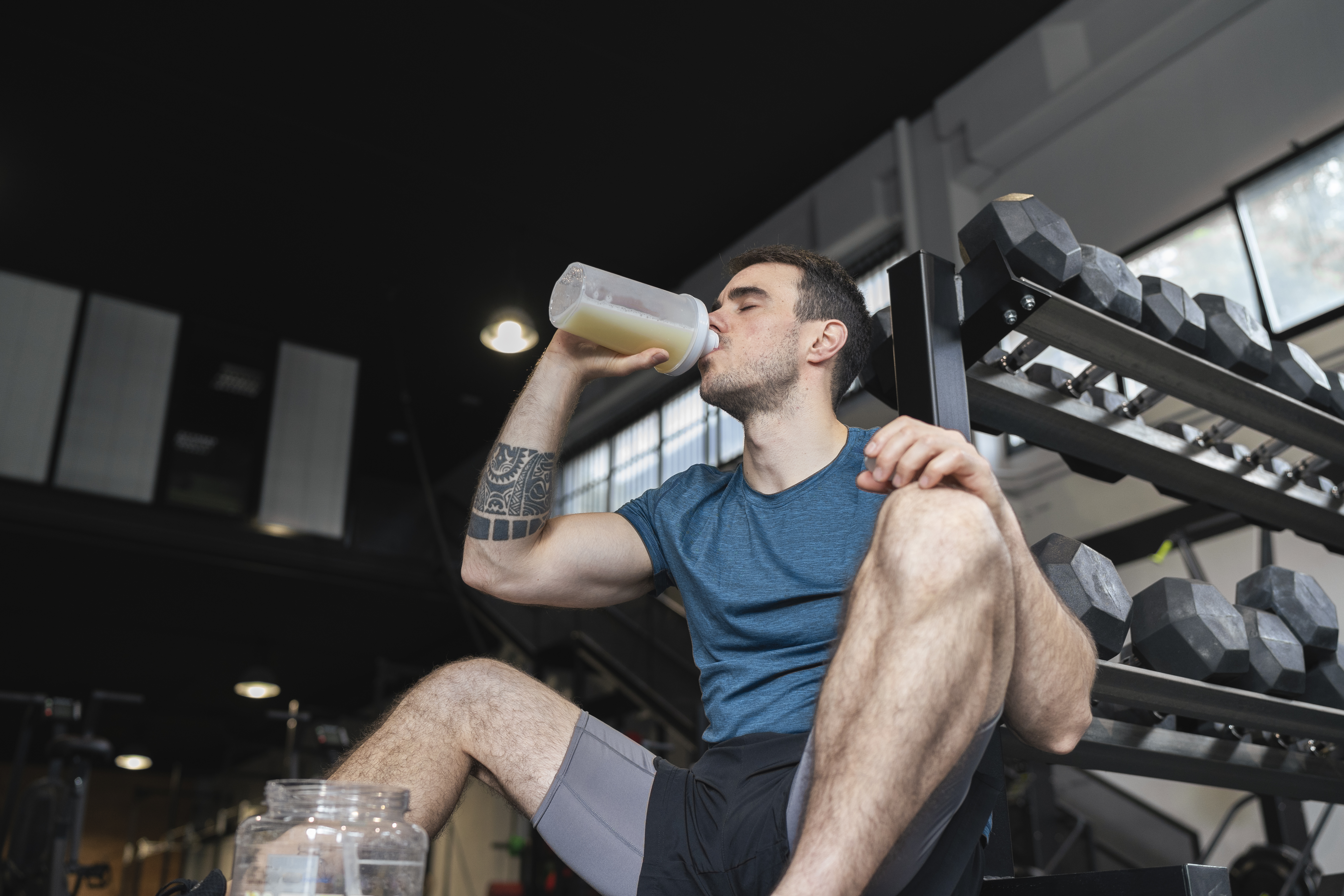
Get all the latest news, reviews, deals and buying guides on gorgeous tech, home and active products from the T3 experts
You are now subscribed
Your newsletter sign-up was successful
The best protein powders are versatile sports supplements. Not only can they help build muscle faster, but they can aid weight loss and general recovery, too. No matter your discipline or athletic status, adding a protein powder to your diet will have its benefits.
Protein can also help you lose weight. While one gram of protein has the same number of calories as one gram of carbs, protein will make you feel fuller for longer, so you're less likely to snack. That's not to say you should totally replace carbs with protein, but introducing more of it to your diet and help you stick your calorie intake goals.
There are now numerous options on the market too, and many of the best protein powders use both dairy-based whey ingredients or vegan-friendly ingredients such as pea or rice and we've picked out the best protein powders for both options in the list below.
Best whey protein powders
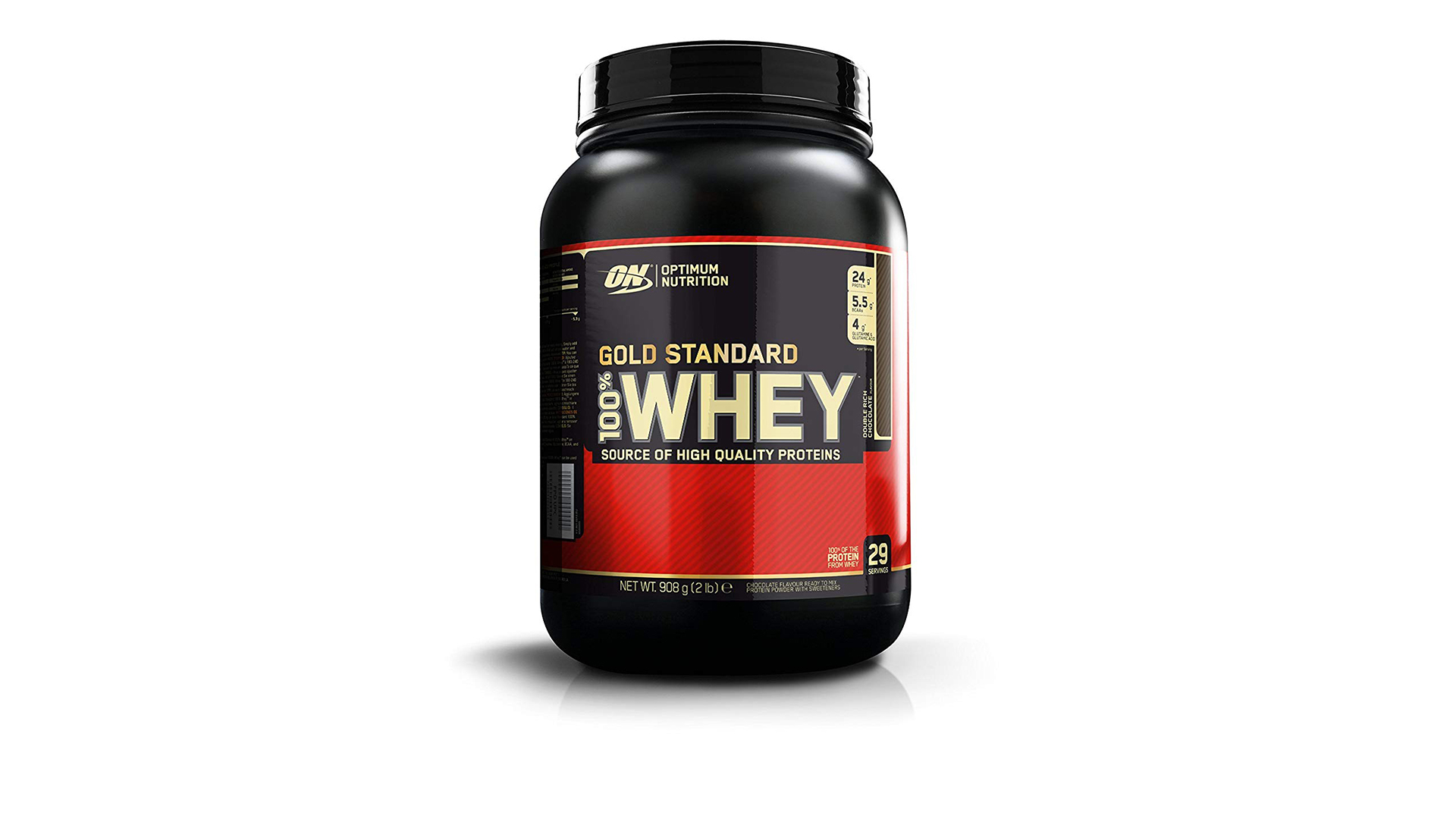
ON Gold Standard 100% Whey
Specifications
Reasons to buy
Reasons to avoid
Optimum Nutrition is trusted by plenty of professional athletes around the world and its Gold Standard whey sits at the very top of its range. It's banned-substance-tested, so you know you're only getting quality ingredients.
With 24g of protein and 5.5g of BCAAs, it delivers a hefty dose of muscle-building nutrients with each scoop, although some flavours aren't quite up to scratch.
It mixes easily with water but the chocolate flavour does a mediocre job of representing a sweet treat - the flavour is much stronger if it's mixed with milk. There are also 17 flavours to choose from, so it's likely some are better than others.
An honourable mention should also go to the 100% Whey's sister product from Optimum Nutrition, the 100% Casein. The flavours are much smoother, making it the perfect pre-bed snack, with slow release proteins adding to your gains while you snooze.
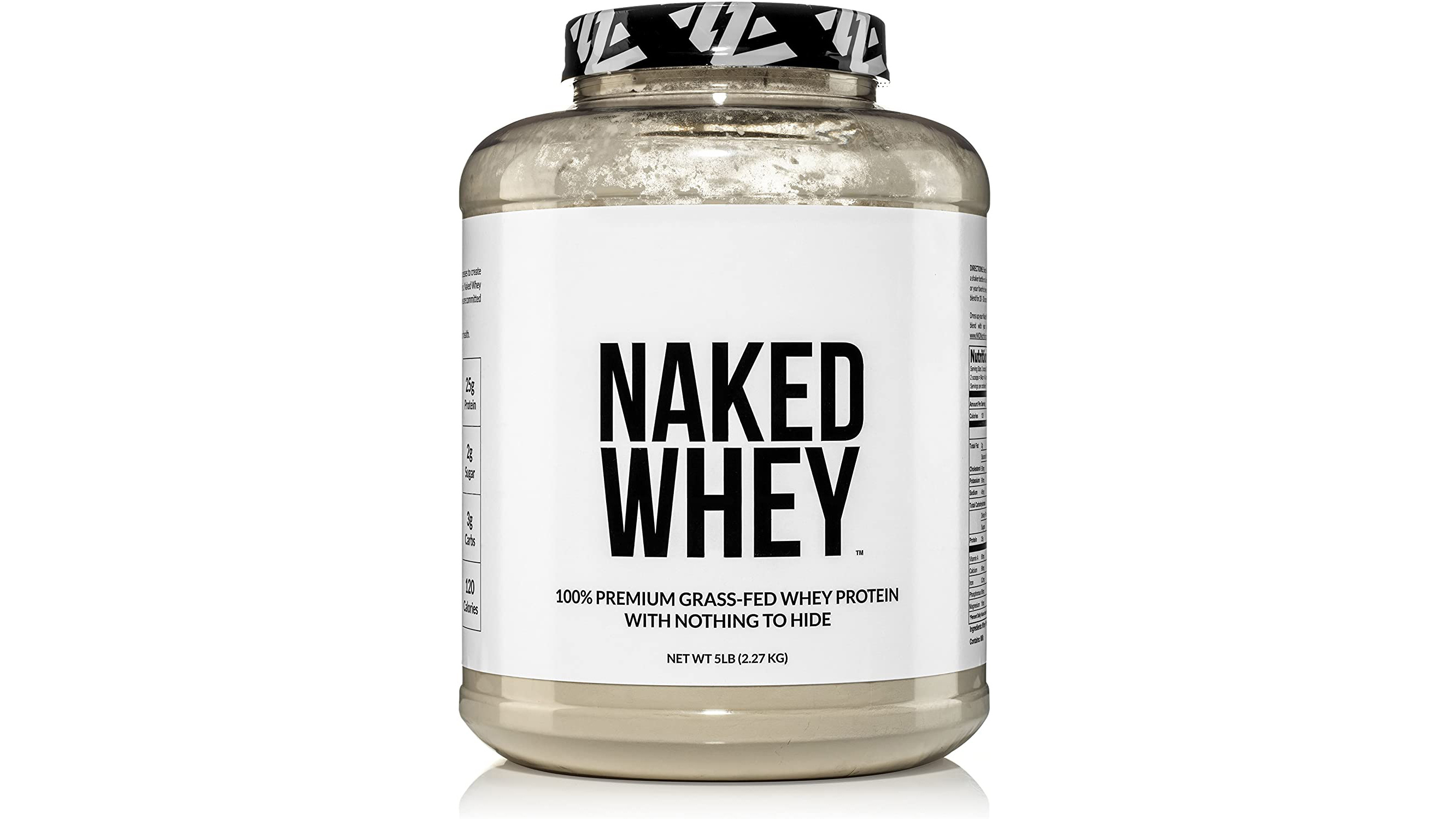
Naked Nutrition Whey Protein
Specifications
Reasons to buy
Reasons to avoid
You should supply your body with protein from a variety of sources but let's face it, you will have at least a protein shake or two a day. If that's the case, you might as well keep these muscle-building drinks as clean as possible. You don't want to ruin your gains with cheap protein powders that are full of hormones and additives.
Naked Nutrition's whey protein is as clean as it gets. In fact, this protein powder has only one ingredient and that is whey protein, sourced from grass-fed cows from small dairy farms in California, according to Naked Nutrition. We haven't been invited to check out the farms themselves so we have to take the manufacturer's word for it.
Some basic stats about the Naked Whey protein: it's GMO, soy, gluten and hormone free plus there are no rBGH or rBST present in the product either. It is also cold processed through an acid and bleach-free operation to make sure the final product is pure as possible.
One serving of this magic powder has 25 grams of protein and only 2 grams of sugar and fat (each). The only downside of Naked Whey is that you will have to flavour your shakes yourself or go for the 'Less Naked' version which has a bit more sugar in it.
The same unflavoured nature makes the Naked Whey ideal for cooking: protein pancakes, homemade protein balls and fruit shakes will all be cleaner using the Naked Whey protein powder.
Just for the record, Naked Nutrition has a vegan protein powder too, called Naked Pea, which is cheaper and contains – you guessed it – pea protein. Actually, the Naked Pea has more protein content than the whey version: there is 27 grams of protein in each 30-gram serving. Not bad.
• Buy Grass-fed Whey Protein Powder directly from Naked Nutrition, AU$120 for a 5-lbs tub
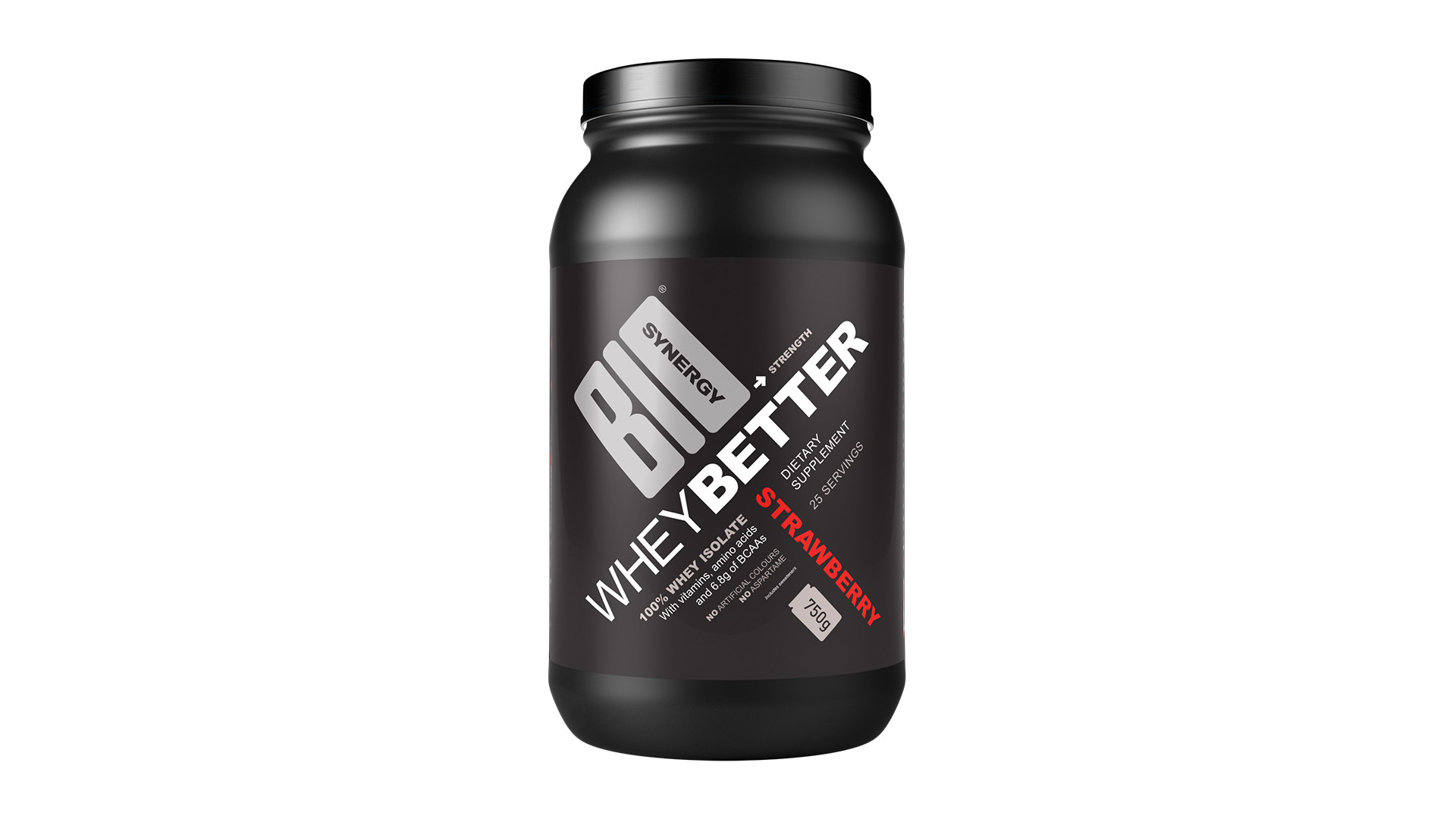
Bio-Synergy Whey Better
Specifications
Reasons to buy
Reasons to avoid
The awkwardly named Whey Better range from Bio-Synergy strips away any sign of fat and sugar for one of the cleanest protein drinks around.
The chocolate flavour isn't particularly convincing and tastes pretty thin when mixed with water, while the ingredients list can look a little scary for those averse to chemical-sounding additives in their drinks.
Niacinamide, Calcium Pantothenate, Pyridoxine Hydrochloride, Thiamin Hydrochloride and the tongue-twisting Cyanocobalamin are all forms of additional vitamins and minerals, but the ingredients list makes the more plant-derived products more approachable on paper.

Musashi 100% Whey
Specifications
Reasons to buy
Reasons to avoid
One of Musashi's staples, the 100% Whey is perfect for those looking for a lean recovery option. With 24.4g of protein and 5.3g BCAAs per serve, it gives you just the right macros for a post-workout shake.
Mixed with water, the chocolate milkshake flavour is still relatively strong - but adding milk will give you an amazing creamy taste. It has a slightly higher sugar and fat content than some of the other lean wheys on our list, but hardly enough to be concerned about.
It's also perfect for athletes as it's part of Musashi's Informed Sport range, meaning every batch is individually tested to ensure there's nothing untoward in there.
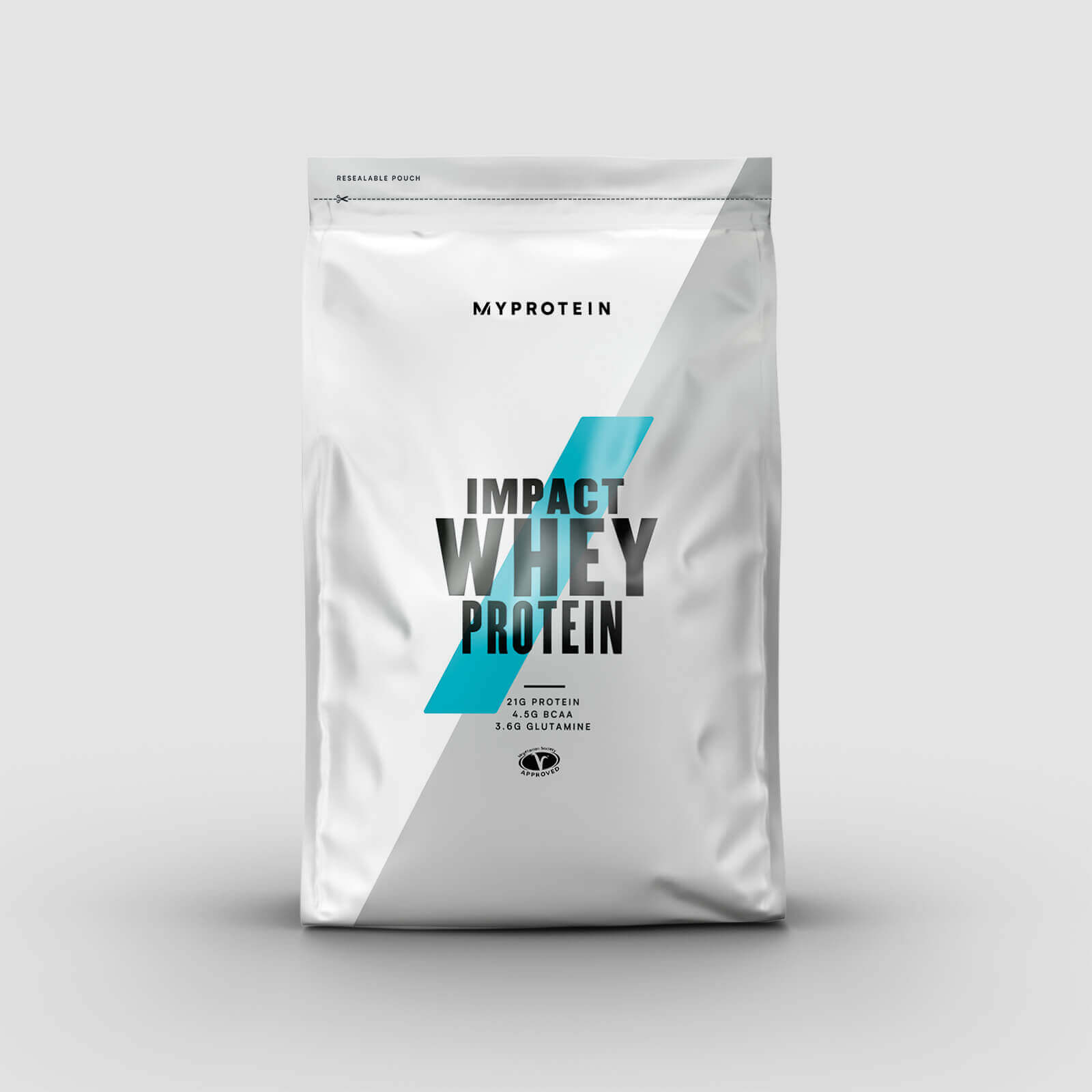
My Protein Impact Whey
Specifications
Reasons to buy
Reasons to avoid
Packed with 23g of protein per serving, this high-quality blend is sourced from dairy cows, so it's all-natural nutrition. At just 103 calories per serve, it's a great weight loss protein shake while helping to grow and maintain muscle.
One of the perks of My Protein is their huge flavour range. Depending on availability, you can choose from as many as 40 flavours – and some of them you won't find with any other supplement on the market.
Coming in at around AU$40 per kilo, it's reasonably priced for such top quality ingredients.
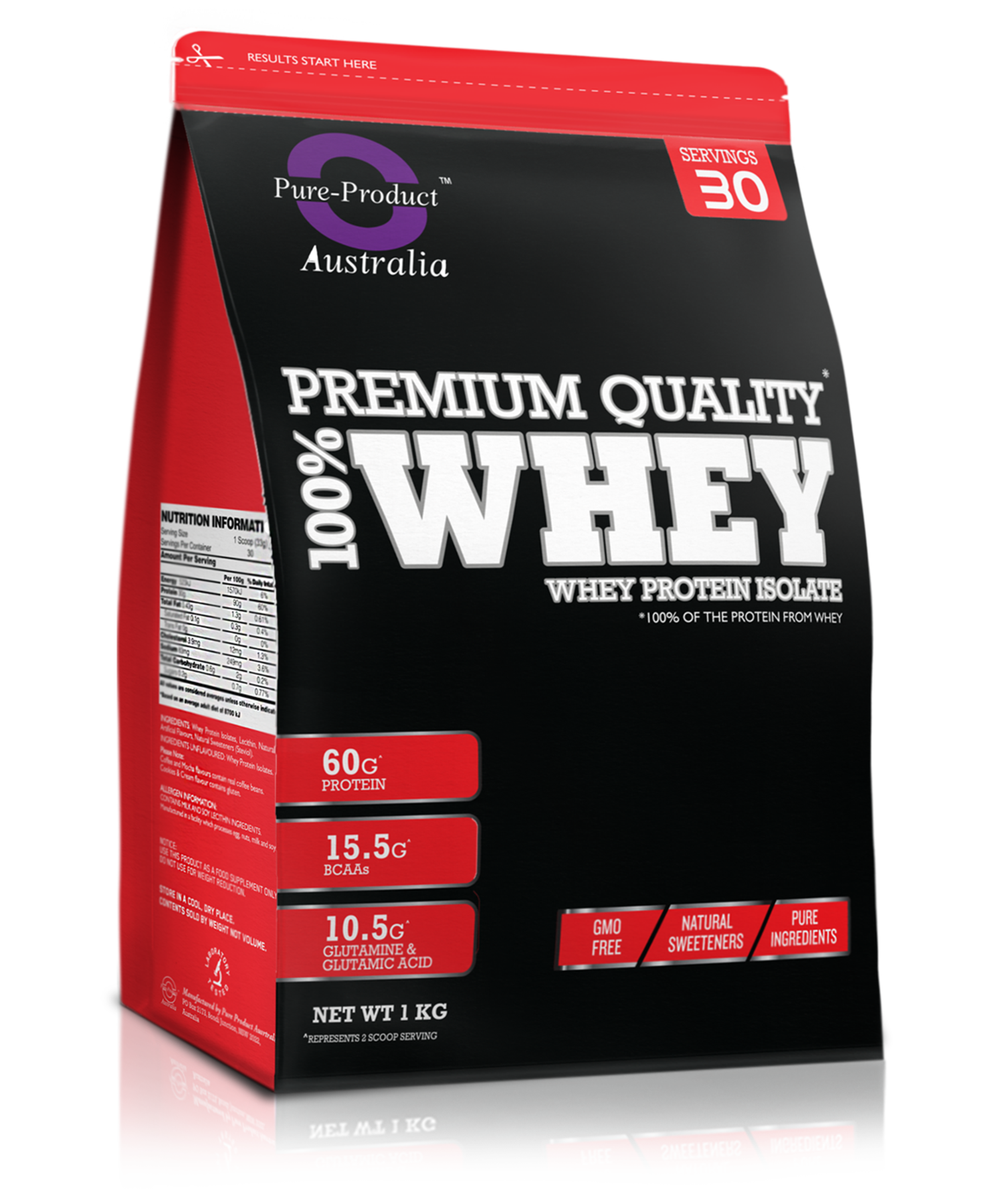
Pure Product Australia Whey Protein Isolate
Specifications
Reasons to buy
Reasons to avoid
If you're not willing to fork out for some of the more expensive options above, Pure Product's WPI is a great alternative.
The Aussie manufacturer has packed 30g of protein into one serve, with hardly any fat or sugar. It's naturally high in BCAAs and glutamine, which help with muscle recovery and can support a strong immune system.
At just over AU$30 per kilo, you've got eight flavours to choose from. Not only is it cheap and offers solid nutritional value, you'll be supporting Australian manufacturing.
Unfortunately, it doesn't mix all that well in a shaker, particularly if you're going for more than one scoop at a time (which you'll need to boost the flavour alone). But if you blend your protein shakes, you'll have no issue.
Best vegan protein powders
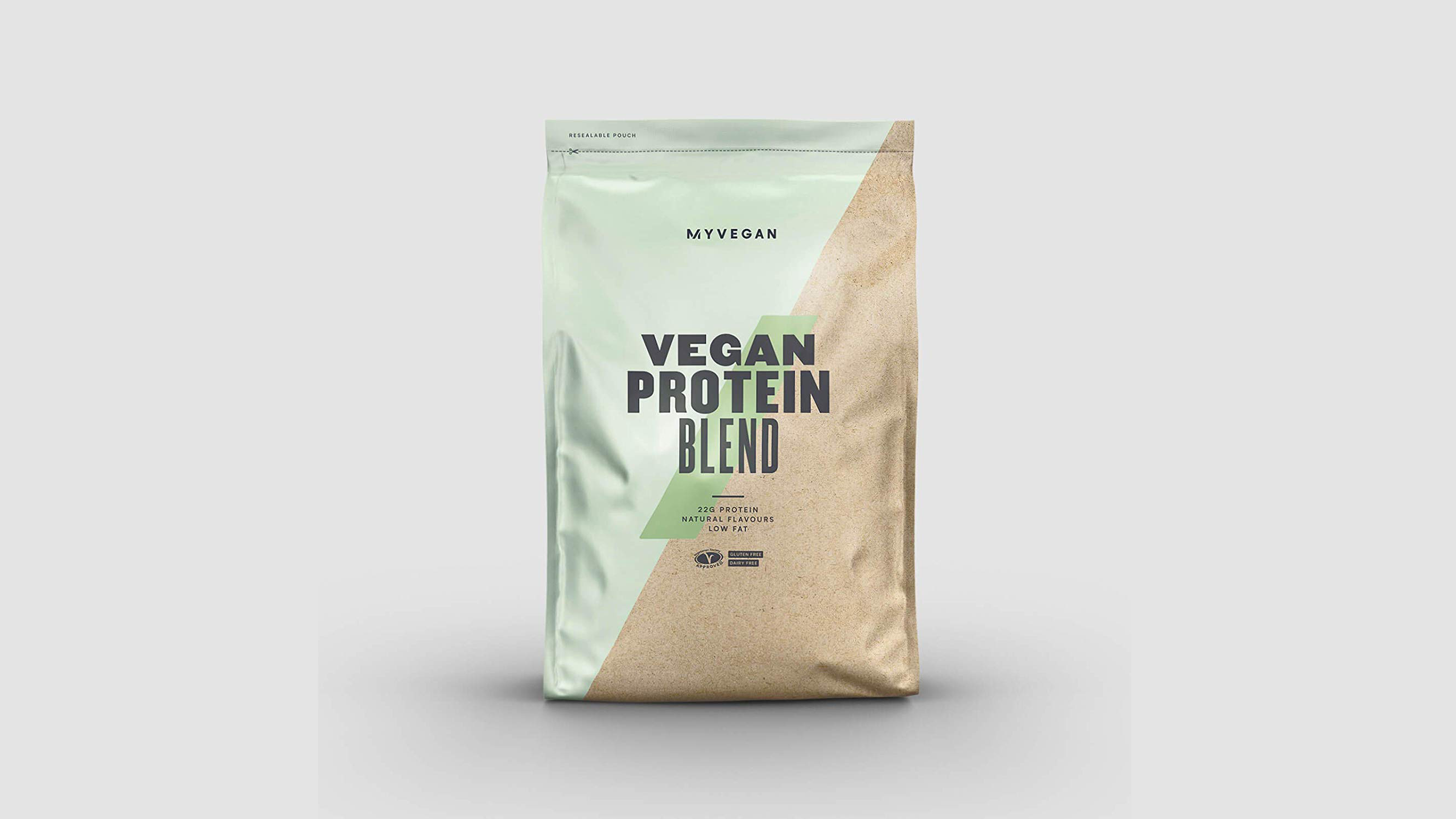
My Protein Vegan Protein Blend
Specifications
Reasons to buy
Reasons to avoid
The My Protein Vegan Protein Blend is crazy low on carbs – only 0.5 gram per serving – and has no sugar in it, at all. Like, zero amounts. If you are looking for a clean protein powder, whether whey or vegan, the My Protein Vegan Protein Blend won't disappoint.
The Vegan Protein Blend is a blend of pea and fava bean protein isolates, in case you were wondering. It comes in small range of flavours, including banana, strawberry, coffee & walnut or even unflavoured, if that's something you'd prefer.
Not to mention, the My Protein Vegan Protein Blend only contains 426 Kilojoules per serving, but still packs 5 grams of naturally occurring BCAAs. Not bad at all.
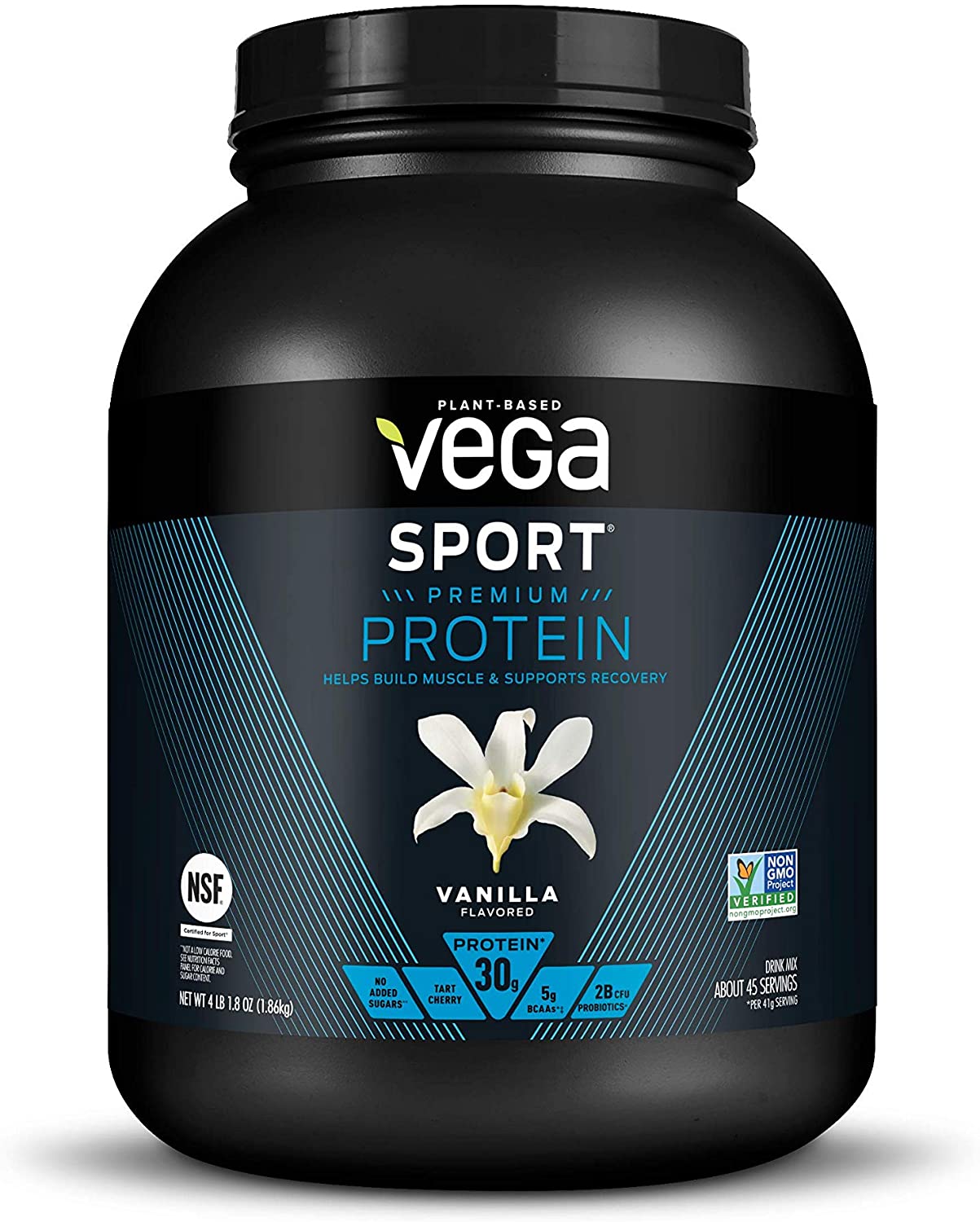
Vega Sport Protein Powder
Specifications
Reasons to buy
Reasons to avoid
With 30g of protein and 6g of BCAAs, the Vega Sport Protein Powder competes with some of the leading whey products in terms of a complete sports recovery supplements. It also includes tart cherry extract, which has been linked to a decrease in post-workout recovery time, making it a favourite for vegan athletes.
Despite a strong blend of pea, pumpkin, organic sunflower seed, and alfalfa proteins, it's surprisingly smooth and mixes quite well with water. You've got the choice of four flavours in Berry, Chocolate, Mocha and Vanilla.
It does, however, sit on the high end of the cost spectrum, coming it at over AU$50 per kilo with some retailers. As it's also not stocked with a lot of mainstream Aussie retailers, Amazon will likely be your best bet – so be prepared to pay a bit for international shipping from the US.
What you need to know about protein powder
There is a saying in gym-circles that goes like this: abs are made in the gym and revealed in the kitchen. This is true not only for abs, but most of your other muscles too. To build lean muscle mass, you have to consume the right amount of protein, ideally sourced from a variety of whole foods. And workout with the best dumbbells, best barbells and best kettlebells. Obviously.
Good sources of protein (and the ones you should be turning to first before diving into powders) include lean meats such as chicken breast and lean steak, fatty fish like salmon, nuts, seeds (e.g. flaxseed, hemp seed), eggs and more. To aid muscle recovery and therefore gains, you will need to supply your body with protein on a regular basis, since we haven't got protein reserves.
How to use protein powder
There are lots of contradicting schools of thought surrounding the optimum time of day to quaff a shake, but most agree that post-workout is a great time to get a shot of whey protein into the system.
The least calorific way to prepare a protein shake is to blend the powder with cold water in a shaker or blender, which typically leads to a thinner consistency and weaker flavour, but contains almost zero fat.
Of course, you can blend with cow's milk or vegan alternatives, bung in some peanut butter, a dollop of chocolate ice cream, a handful of cherries and whizz it into a blender for a truly opulent treat, but the waistline probably isn't going to thank you for it.
Either way, we recommend using a protein shake blender to achieve maximum consistency. You can just use a regular blender but these were designed for chopping ingredients as opposed to mixing them, resulting in a coarser shake.
There are also lots of online resources for those who wish to get creative and sprinkle some protein powder into their bakes and culinary creations, but we'd advise sticking to cold water and downing the stuff for the quickest and most convenient results.
Have one for breakfast, take it at lunch or drink before going to bed to top up the protein in your diet, but ensure you stick to the recommended daily allowance and don't overdo it.
Excessive protein intake can put additional strain on your kidneys and liver, which have to work harder to process the surplus nutrients.
Best protein powder Australia: FAQ
How much protein powder should I take?
The right amount of protein to consume is a constant source of debate among professionals, but the general consensus at the moment states that you'll need to take anything between 1.8-2.2 grams of protein per body kilogram per day if you do rigorous training.
Most protein powders provide nutritional information based on a 25 – 30g scoop, but not all of them include a scoop in the packaging, so you'll need to weigh the powder yourself.
What type of protein powder is best?
Whey and casein are two of the most common protein types, with the latter acting as a slow release protein that is usually taken before bed and assists the body in repairing and building muscle during rest.
Whey protein is by far the most popular fast-acting choice and can be taken at any time of day to meet your protein requirements. Within whey protein, there are two main types: whey concentrate and whey isolate. Isolates will contain more protein per serve due to the way it's made, but concentrate is still going to be an effective option.
But because it's fashioned from a dairy derivative, those on a plant-based diet need to look elsewhere. Fortunately, there are many vegan plant-based options now widely available, with the most common being pea protein.
When looking to invest, make sure you spend some time studying the nutritional information on the tub. Steer clear of added sugar, emulsifiers, chemical sweeteners and other nasties that are often included in cheaper products to bulk them out.
When should I drink a protein shake?
There are lots of contradicting schools of thought surrounding the optimum time of day to quaff a shake, but most agree that post-workout is a great time to get a shot of whey protein into the system.
Get all the latest news, reviews, deals and buying guides on gorgeous tech, home and active products from the T3 experts

